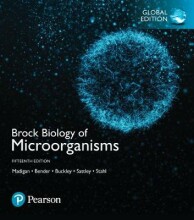Summary: Parasitology
- This + 400k other summaries
- A unique study and practice tool
- Never study anything twice again
- Get the grades you hope for
- 100% sure, 100% understanding
Read the summary and the most important questions on Parasitology
-
1 Lectures
-
1.1 Introduction
This is a preview. There are 4 more flashcards available for chapter 1.1
Show more cards here -
What are facultative and obligate hosts?
Fucultative is when the parasite may exist in an free living stage, ibligate is when the parasite cannot survive without its host. -
1.2 Diagnostic challenges
This is a preview. There are 4 more flashcards available for chapter 1.2
Show more cards here -
How do protozoa replicate?
Through schizogony/sporogony or binary fission -
What does ASSURED stand for?
Affordaple, sensitive, specific, user-friendly, rapid&robust, equipment free, deliverable -
What are limitations of ASSURED?
It is focused on test& treat and remote areas, but in other settings other requirements may be as important (egreproducibitity for research, counting forhelminths , largethroughput ) -
What are cons of microscopy?
Less sensitive (3 samples of 3days) , species distinction may be difficult, timeconsuming , requires training,observer dependent, multiple procedures with one sample -
How can entamoeba histolytica, giardia lamblia and cryptosporidium parvum be diagnosed? And what are the pro's and cons?
1. Microscopy
Pro: available, affordable, mostly specific
Con: more samples, staining procedures
2. Antibody detection
Pro: fast, sensitive
Con: invasive
3. Antigen detection (like pregnancy test)
Pro: fast, sensitive, less training required, reproducible
Con: Only crypto+giardia, relatively expensive, miss other parasites
4. PCR, NAAT
Pro: fast, sensitive, specific, multiplex, high throughput, quality control options, reproducible
Con: need molecular set-up laboratory -
How can malaria be diagnosed and what are pros and cons?
1. Microscopy (thick smear with lysed blood, thin smear with fixed and stained blood)
+ Sensitive (thick), species differentiation (thin), quantification, fast
- detection limit, observer&procedure dependent, not fast enough, labourous
2. Antibody detection (serology)
- it takes time to develop antibodies so you might be dead
3. Antigen detection (RDT's used in many areas, fingerprick stick)
+ fast, species differentiation for vivax and falciparum, no training, sensitive when high parasite loed, widely available, inexpensive
- less sensitive for non-falciparum, no counting, deletions in target antigen reported
4 PCR
+ sensitive, specific, quantify, large throughput
- costly, not so fast, availability (now changing) -
How is schistosoma diagnosed and what are pros and cons?
1.Microscopy (reference test, look at eggs as other half stuck in tissue,kato-kats to look at intensity eggs per mg/ml)
+ specific,quantification , available, affordable
- low sensitivity,fluctuation of egg secretion
2.Serology /antibodies (chronic so you stay positive)
+ specific, sensitive, nocross-reactivity with otherhelminths
- no intensity of infection, not for evaluation of treatment
3. Antigen detection
+ non-invasive
- POC-CCA only mansoni and 20 mins reading, UCP-LF CAA laboratory based -
What are 3 requirements for a new diagnostic tool for schistosoma?
1. Highly field applicable and user friendly
2. Highly sensitive: case detection for monitoring intervention
3. Detecting active infection (worm load) -
What are CCA and CAA?
These are circulating antigens excreted from the parasite gut. They can be found in blood and urine and they are unique for schistosoma.
- Higher grades + faster learning
- Never study anything twice
- 100% sure, 100% understanding
Topics related to Summary: Parasitology
-
Indtoduction - PAM
-
Indtoduction - Controlled human infection models
-
Indtoduction - Malaria transmission to mosquitoes
-
Indtoduction - Survival strategies
-
Indtoduction - Hygiene hypothesis
-
Indtoduction - Ectoparasites
-
Indtoduction - Emerging zoonoses
-
Indtoduction - Schistosoma
-
Indtoduction - Taenia Solium
-
Parasite life cycles - Echinococcus
-
Parasite life cycles - Toxoplasma gondii
-
Parasite life cycles - strongyloides stercoralis
-
Parasite life cycles - Plasmodium falciparum
-
Articles - T gondii
-
Articles - Trypanosoma































